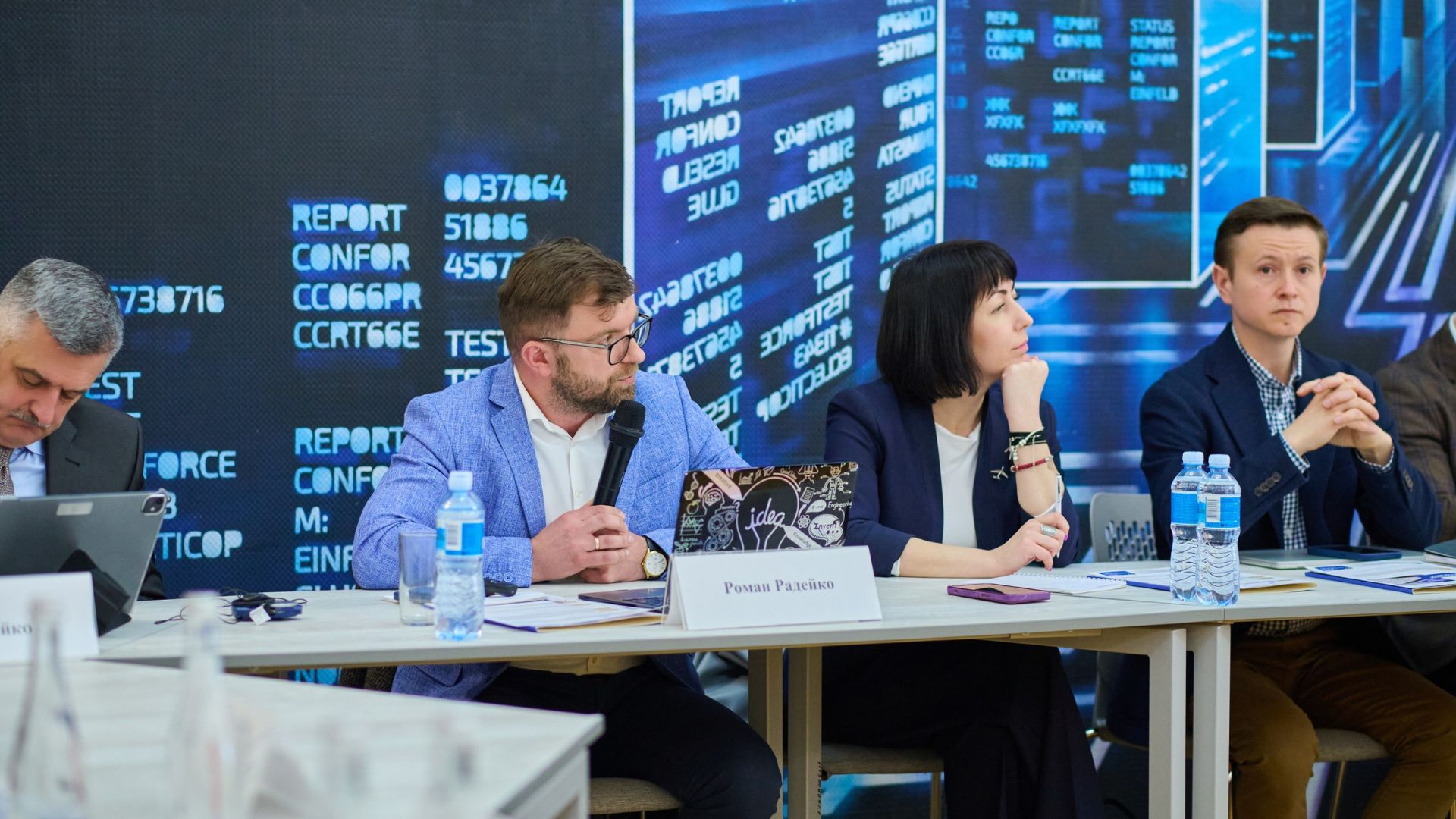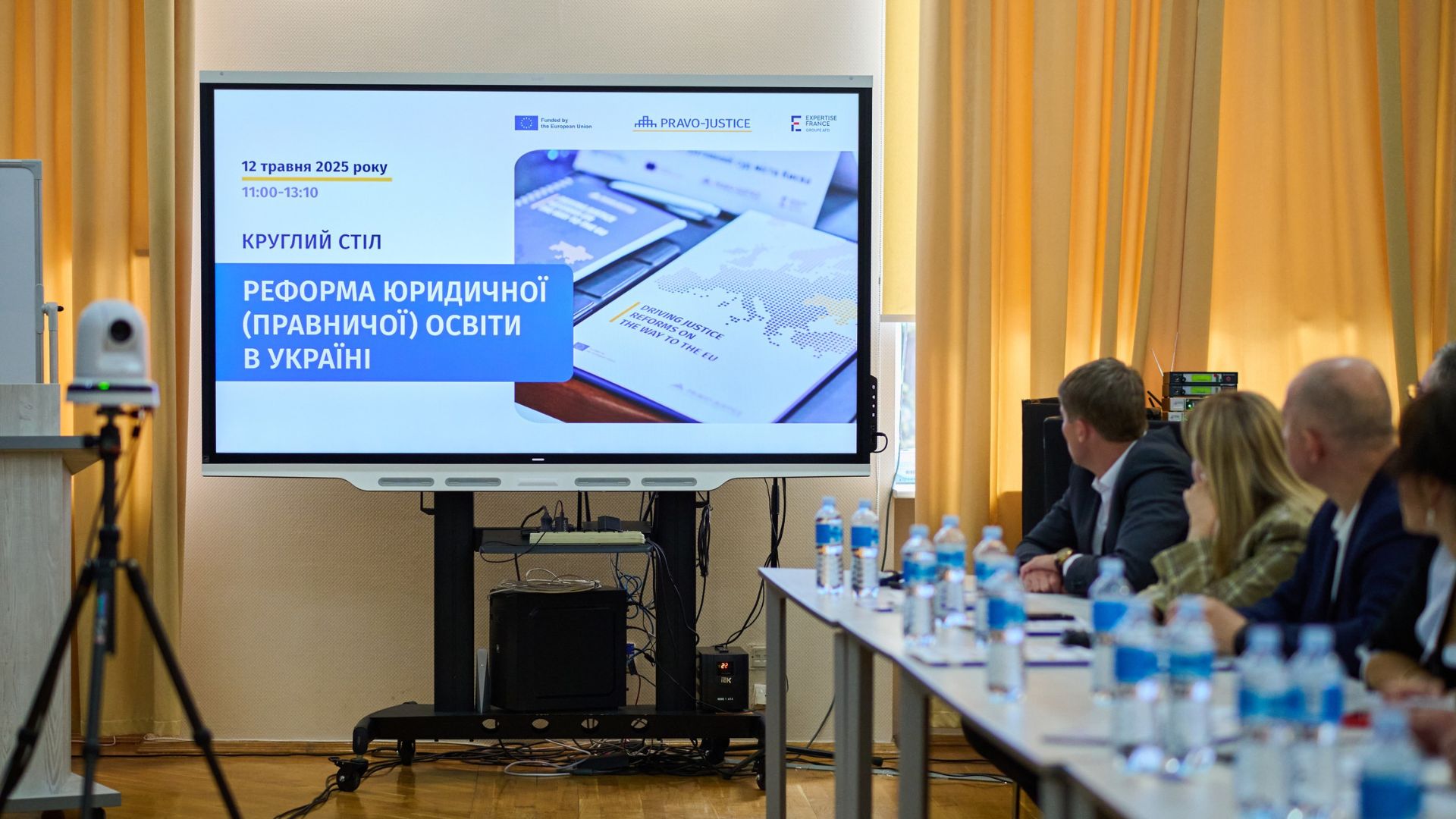Modern Legal Education: Ensuring Quality Training for Future Lawyers
On May 12, 2025, a roundtable titled "Legal Education Reform" took place, organized by the EU Project Pravo-Justice in collaboration with Taras Shevchenko National University of Kyiv. The event brought together representatives of the academic community, international experts, and specialists in legal education to discuss the key challenges and future directions of reform in this field.

The event was opened by Mykola Stefanchuk, Chair of the Subcommittee on Legal Policy of the Verkhovna Rada of Ukraine, Mykola Kucheriavenko, First Deputy Minister of Justice of Ukraine, Volodymyr Bugrov, Rector of Taras Shevchenko National University of Kyiv, Alban Biossa, Sector Manager at the EU Delegation to Ukraine (who joined online), and Oksana Tsymbrivska, Head of the EU Pravo-Justice Project. The discussion was moderated by Ksenia Smyrnova, Vice-Rector for Research and International Cooperation at the University.
Among the main topics discussed was the Concept for the Development of Legal Education. Andrii Boiko, a member of the Working Group responsible for developing this document, emphasized the importance of aligning Ukraine's legal education with international standards and the demands of the domestic labor market.
Gintaras Svedas, a professor and international expert with the EU Pravo-Justice Project, highlighted the role of European integration in reforming higher legal education. He noted that adapting Ukraine’s education system to European standards is a key step towards ensuring the competitiveness of Ukrainian graduates in the global market.

Roman Radeiko, Head of the Scholars and Educators Section of the Ukrainian Bar Association (UBA), focused his remarks on the challenges related to the introduction of the Unified State Qualification Exam (USQE). He emphasized that while this tool is intended to improve the quality of legal education, the recent lowering of the passing scores does not reflect the actual state of legal training in Ukraine.
"Since 2015, significant steps have been taken to reform legal education. Among the most notable are the introduction of the Unified Entrance Examination (UEE) and the USQE as mandatory steps towards a legal career. Initially, these exams faced skepticism and resistance. However, the results have revealed the overall state of legal education, which, as predicted, is not entirely encouraging.
The main challenge today is the lowering of the passing scores for the UEE and USQE in recent years, which fails to reflect the real situation in legal education. Despite this, the legal market is the first to feel the shortage of skilled young lawyers.
There is hope that the efforts of the Working Group on legal education reform will not be in vain. Over the past few years, the Concept for the Development of Legal Education has been drafted, and work on the Law of Ukraine on Higher Legal Education and Primary Access to the Legal Profession is nearing completion," Radeiko added.
The event concluded with an open discussion in which participants explored the challenges and opportunities of legal education reform and discussed ways to ensure fair access to the profession for future lawyers.
The Ukrainian Bar Association continues to support its Scholars and Educators Section, as well as initiatives aimed at improving the legal education system to ensure the preparation of competent and competitive professionals for Ukraine’s legal community.

